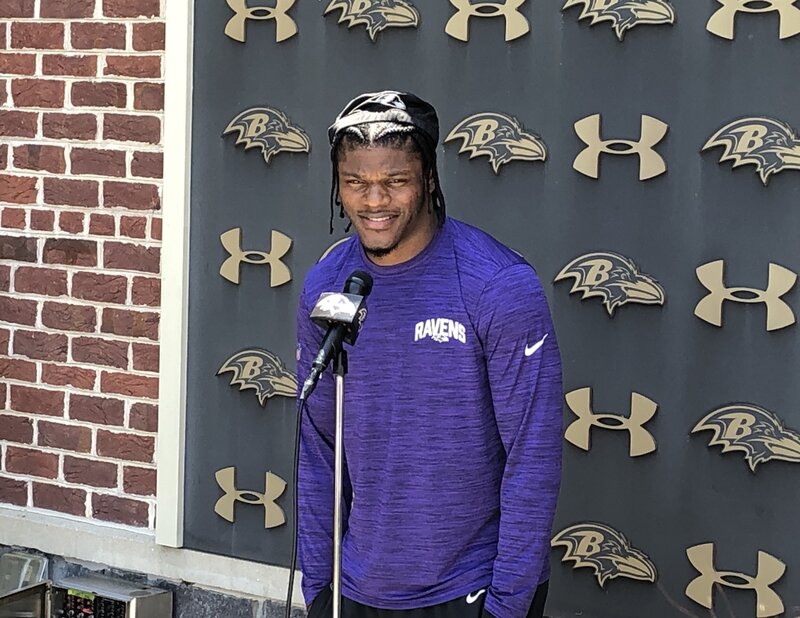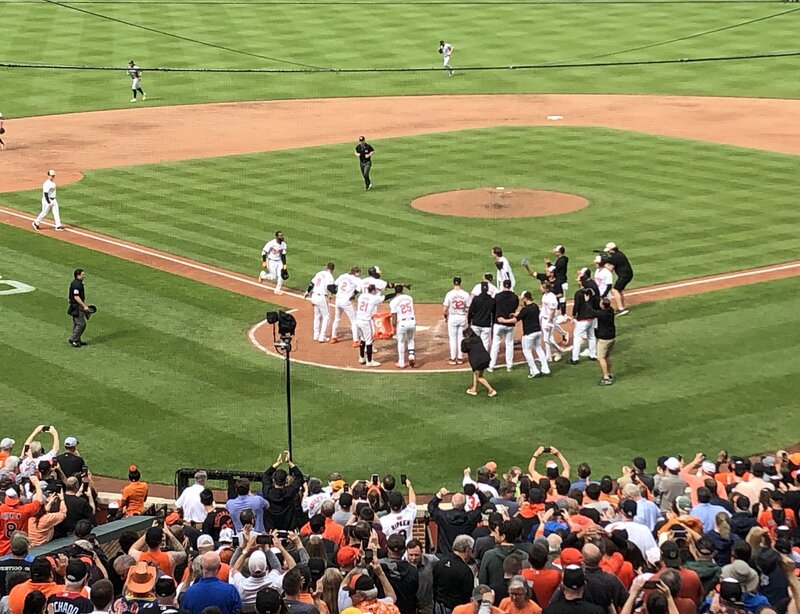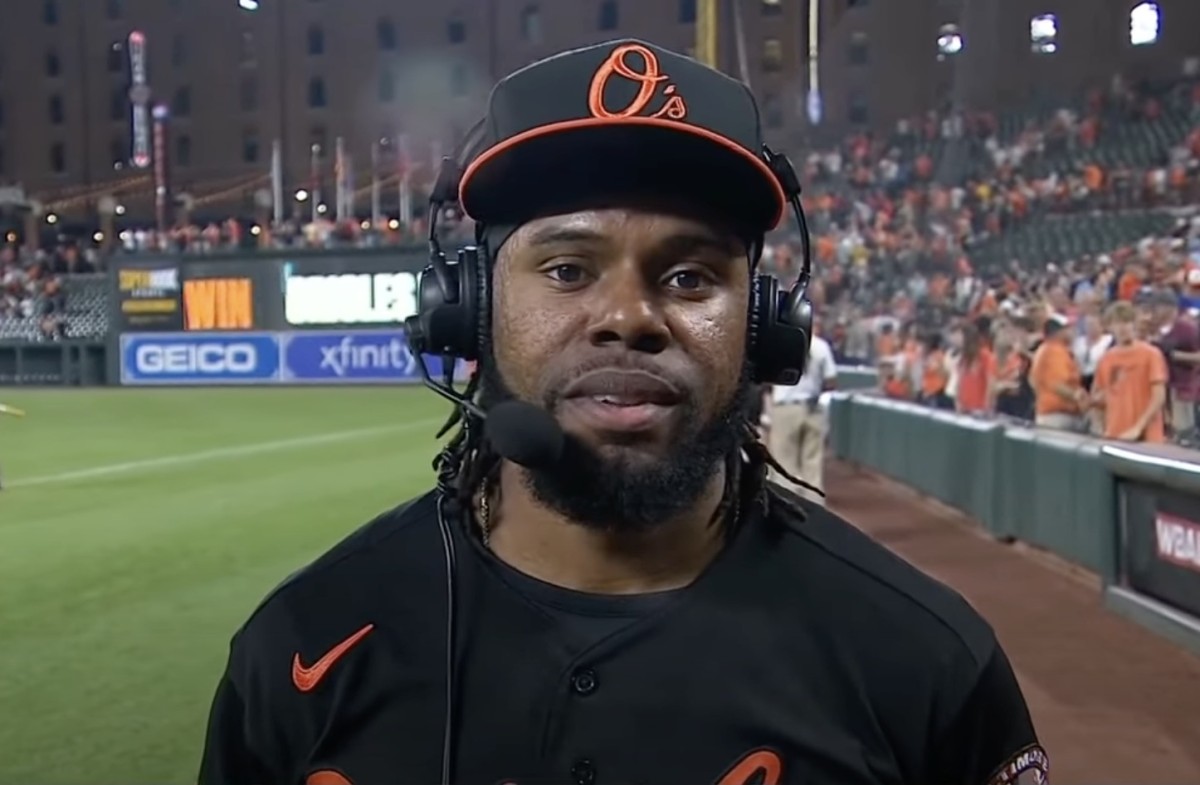Free agency officially begins in two weeks and the 2020 draft is only 50 days away for the Ravens.
The sting of the best regular season in franchise history ending with an upset divisional-round loss lingers less than two months later. The mental challenge of moving on and trying to exorcise those playoff demons will persist long after general manager Eric DeCosta plays his offseason hand and head coach John Harbaugh has a better idea of what his team will look like in the coming weeks.
Yes, we’ve reached the point in the offseason when it feels as though every team — even Super Bowl champion Kansas City — has more questions than answers with no shortage of free-agent projections, mock drafts, and lists of needs to mull over.
How do the Ravens proceed if eight-time Pro Bowl guard Marshal Yanda indeed retires?
What will be the resolution with Pro Bowl outside linebacker Matthew Judon, and how will that impact a pass rush already desiring more juice?
Are there enough cap dollars and draft picks available to effectively retool a free-agent-laden front seven that already had its deficiencies last year?
What about — for the “I lost count”-th year in a row — wide receiver?
But this is when the Ravens — and their fans — need perspective more than a linebacker, guard, or defensive tackle. Going an NFL-best 14-2 with the best point differential in the league in more than a decade — with some of the aforementioned concerns, mind you — shouldn’t be an invitation for complacency, but there is a fine line between evolving and trying to fix something that isn’t broken. Baltimore surely took lessons from the Tennessee loss — needing to be able to play more effectively off schedule, for example — but a bad day at the office at the wrong time didn’t mean there was some fatal flaw in need of upheaval.
Having the most efficient running and passing games in the league and a top-tier defense isn’t an identity from which to stray too far despite how tempting it can be to be bold addressing weaknesses. That’s where you trust an analytics-minded front office and coaching staff to understand themselves and the entire body of 2019 work rather than to overreact to one heartbreaking loss or a couple failed fourth-and-1 plays. Of course, there’s work to do.
“We understand that we are going to be studied on both sides of the ball by every single team in the league very thoroughly.” Harbaugh said in January. “We’ll be the first team that they will pull the tape up on and watch. Our job is to stay ahead. Our job is to find the areas where we can come up with new ideas — expand, tweak, challenge people the way they challenged us or the way we anticipate them challenging us going forward.”
Losing Yanda would definitely be a big blow to a record-setting offense, but the 2017 Ravens were a last-second Week 17 collapse away from making the playoffs without him or reigning NFL MVP Lamar Jackson, who was spending his last days at Louisville. Jackson’s unparalleled athleticism at the quarterback position will continue to make life easier for the offensive line and whoever might need to replace Yanda.
Few would argue that the Ravens would benefit from another wide receiver to make more plays outside the numbers, but the strength of the passing game remains the middle of the field with Jackson heavily targeting his tight ends, something unlikely to change as defenses across the NFL struggle to account for big, athletic tight ends. DeCosta and Harbaugh have expressed optimism about receivers being more open to playing in this unique run-first offense, but the right fit is more critical than adding “a true No. 1” who might grow unhappy with a fraction of the targets he’s used to seeing in a typical offense.
Speculation about trading tight end Hayden Hurst and mock drafts projecting the Ravens to take a running back in the first round would fall under the category of trying too hard to fix something that isn’t broken. The Yanda decision aside, this offense simply doesn’t need a ton of work beyond adding another pass-catching option at some point and implementing whatever system tweaks offensive coordinator Greg Roman and the staff cook up between now and September.
The defense is a different story with the front seven having multiple free agents, a list including Judon, defensive tackles Michael Pierce and Domata Peko, inside linebackers Josh Bynes and Patrick Onwuasor, and situational rushers Pernell McPhee and Jihad Ward. However, nearly half of those players were added during the 2019 season, a testament to defensive coordinator Wink Martindale and the front office to at least identify viable placeholders and account for less-than-ideal conditions.
An edge defender or two, a three-down inside linebacker, and a defensive tackle with pass-rushing ability would all be welcome additions, but that’s an ambitious list for one offseason. There’s no guarantee the right pass rusher or inside linebacker will be on the board when Baltimore selects 28th overall in next month’s draft, and there are red flags everywhere with free-agent edge rushers — Judon included.
Regardless of what happens in free agency and the draft, the Ravens will continue to lean on an elite secondary, a defensive strength endorsed by analytics, and the frequent blitzing that made a rebuilt defense one of the league’s best over the second half of 2019. The identity is in place, which is more than many defensive units can say at this point. Last season proved the personnel doesn’t need to be perfect.
“I think we want to have really good players at all those positions,” DeCosta said in Indianapolis last week. “I’d love to have some elite pass rushers. I’d love to have some elite corners. I think Wink Martindale does an unbelievable job taking players, finding out what they can do, putting them in position to succeed, and they did that this year. What we were able to do on defense under Wink’s guidance with our coaches and our players — bringing in all those guys that we did — I thought that was masterful.”
The Ravens are bound to face some roster turbulence over the next few weeks. A year ago at this time, DeCosta didn’t know he’d be losing perennial Pro Bowl defenders C.J. Mosley and Terrell Suggs, and desperate teams frequently overpay players coming from winning organizations. Baltimore has never been in the business of “winning” the offseason, and that’s unlikely to change simply because of a little more salary cap space than usual this year. Long-term planning is too critical, especially with the elite talents up for contract extensions over the next couple years such as left tackle Ronnie Stanley, cornerback Marlon Humphrey, and Jackson.
The truth is I’d take this team essentially as it is — meaning all but sitting out free agency and having only an ordinary draft class — up against any conference opponent not named the Chiefs next fall. Even with the disappointment of January being so slow to dissipate, that is rare territory and speaks to the tremendous opportunity Baltimore has to improve this offseason.
Of course, that doesn’t mean the Ravens are going 14-2 again — only three teams have ever done that in back-to-back years — as unforeseen challenges await next season. They can’t count on the schedule to fall the right way or for their remarkably good health over the last two seasons to continue, but those are realities every team faces. That’s why the Ravens know they must continue to evolve without drastically altering what they do best.
“We’re not going to be sitting on our hands schematically,” Harbaugh said. “We are not going to be saying, ‘OK, we have this offense and this defensive system that was hard for people to deal with, and we are good.'”
But they are good. Very good.
That makes this year’s offseason uncertainty easier than usual to handle, regardless of how it all plays out.










